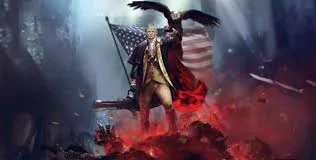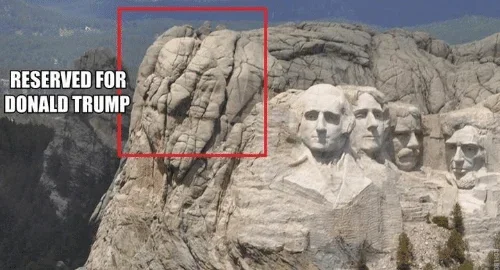Yeah, our America-loving President got his way with those steel and aluminum tariffs, which were allegedly directed at curbing Chinese imports
but that will in fact cause a much greater impact on US allies. China comes in at #11 on the list, supplying less than 2% of US steel imports. So remind me exactly who benefits from this?
The US will continue to import a lot more steel than it produces. The tariffs will raise raw material prices, which producers will then pass along to consumers. In short, the tariffs will 1.) alienate close allies like Canada and 2.) increase prices on construction materials and consumer goods.
So given all the historical evidence that steel tariffs simply do not work, why was Trump so adamant that they get pushed through? Could there be a political reason?

From the article linked above:
Steel has long been a politically sensitive issue, especially since much of the production takes place in swing states such as Pennsylvania. Pro-union Democrats have pushed for tariffs and other restrictions for years — many quietly support Trump’s move — and it’s one of the few industries that Republican presidents have singled out for protection.
The decline in U.S. steel jobs, however, has been going on a long time despite frequent interventions by Washington.
Steel now directly employs about 140,000 workers, according to Bureau of Labor Statistics. More than half a century ago as many as 650,000 people were employed in the industry.
The steel industry has undergone vast changes since the end of World War Two. For one thing, a stream of technological advances have spawned huge increases in productivity, allowing steelmakers to do more with fewer workers.
Steelmakers also gather up and reform scrap metal more than ever, a form of recycling that also requires fewer workers.
Stiffer foreign competition and more imports, to be sure, have contributed to the loss of American steel jobs. Just how much has been hotly debated for years, but research suggests it’s played a smaller role.
In any case, the penalties probably won’t achieve their intended affect. Tariffs imposed by prior presidents from both parties, including George W. Bush, Bill Clinton and Ronald Reagan, have done little to stem the tide.
The last major round of steel tariffs, imposed by Bush in 2002, did more harm than good to the U.S. economy, several studies later concluded.
Higher tariffs have encouraged other U.S. manufacturers to seek out cheaper substitute materials to avoid the higher cost of steel that often results.Or they’ve tried to pass the cost onto customers. And in the worst-case scenario they’ve had to reduce production or layoff workers to cope with higher steel prices.
Most American manufacturers oppose the new tariffs.
The Business Roundtable, a lobbying group for the largest American companies, said it strongly disagrees with decision “because it will hurt the U.S. economy and American companies, workers and consumers by raising prices and resulting in foreign retaliation against U.S. exporters.”








